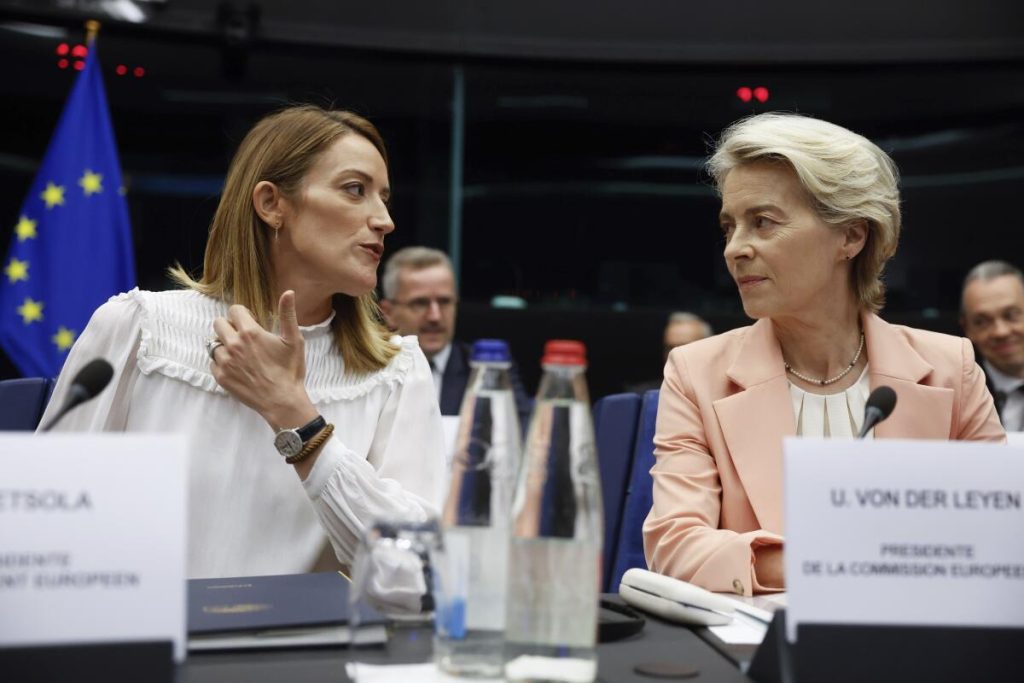Ursula von der Leyen Reveals New European Commission Team Amidst Political Maneuvering
3 min read

Ursula von der Leyen, the President of the European Commission, has unveiled her proposed new team of commissioners after extensive negotiations with EU member states. This announcement marks a pivotal moment as the European Commission, akin to a cabinet for the EU, prepares for its next term.
The new lineup consists of 26 proposed commissioners, with 10 women and 16 men, reflecting a notable improvement in gender representation. Initially, when von der Leyen was re-elected for a second five-year term in July, she had requested that member states submit two nominees—one man and one woman—for each position. However, the initial response fell short of her expectations. “When I received the first nominations, the representation was only 22% women and 78% men,” von der Leyen remarked. She described this disparity as “completely unacceptable.”
Following persistent efforts and negotiations with the member states, von der Leyen managed to enhance the gender balance, achieving a 40% representation of women in the proposed team. Despite this progress, she acknowledged that more work remains to be done to ensure a fully equitable representation.
The presentation of von der Leyen’s proposed team comes after several weeks of intense political bargaining. The new team features candidates from a broad spectrum of political ideologies. Notably, Spain’s Teresa Ribera, representing the Socialist party, France’s Stéphane Séjourné, a Liberal, and Italy’s Raffaele Fitto from the far-right Brothers of Italy, have been appointed as executive vice-presidents responsible for significant economic portfolios.
The distribution of portfolios often reflects a complex interplay of national interests, with member states jockeying for influential positions for their candidates. Despite the ideal of impartiality, national interests frequently play a role in these appointments.
The announcement also comes in the wake of a dramatic resignation by Thierry Breton, France’s former Commissioner for Internal Market Affairs. Breton took to social media to accuse von der Leyen of undermining him by promising French President Emmanuel Macron a more prestigious role for France in exchange for sidelining him. This public dispute highlights the intense political maneuvering involved in the selection process.
The proposed commissioners now face a rigorous vetting process. They must be reviewed by parliamentary committees and receive approval from the European Parliament. There is no certainty that all the nominees will clear these hurdles. For instance, Italy’s Raffaele Fitto, closely aligned with right-wing Prime Minister Giorgia Meloni, has already faced criticism. The European Parliament’s Socialists and Democrats have expressed concerns that Fitto “does not meet the demands of our political family,” while French MEP Valérie Hayer, leader of the EU Liberals, indicated that her party would make “real demands” of Fitto during the vetting process.
As the new Commission is set to take office by the end of the year, the outcome of the parliamentary review will be crucial in determining the final composition of the team. The process underscores the political complexities inherent in forming the European Commission, where national interests and political negotiations play a significant role in shaping the EU’s executive branch.
Von der Leyen’s efforts to balance gender representation and address political demands reflect ongoing challenges in European governance. The final approval of her team will be closely watched as a barometer of the EU’s commitment to both gender equality and political inclusiveness.